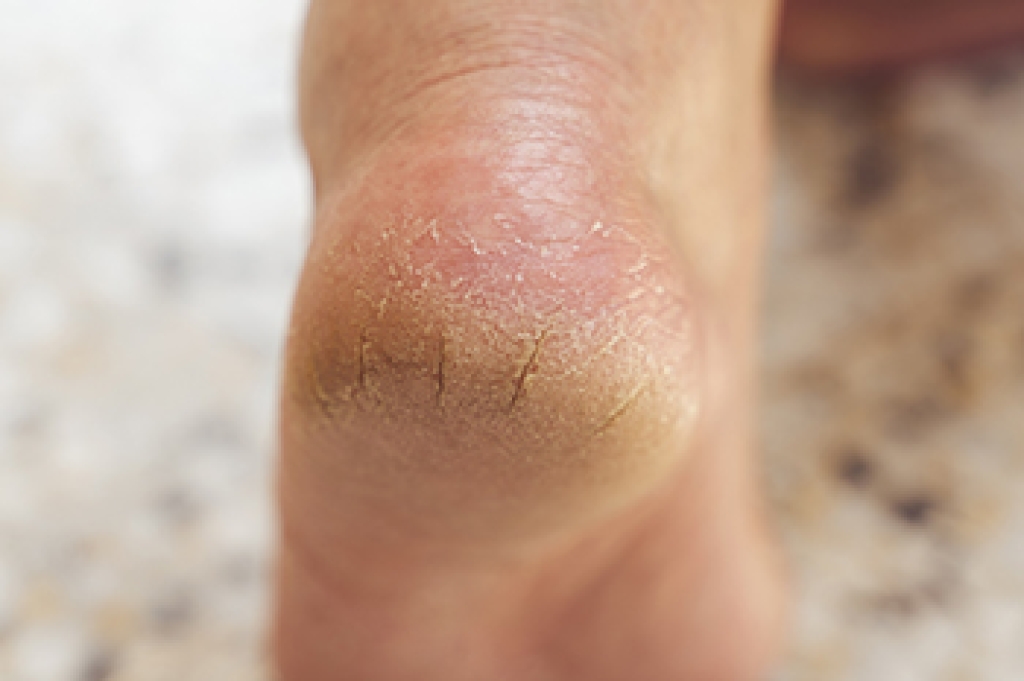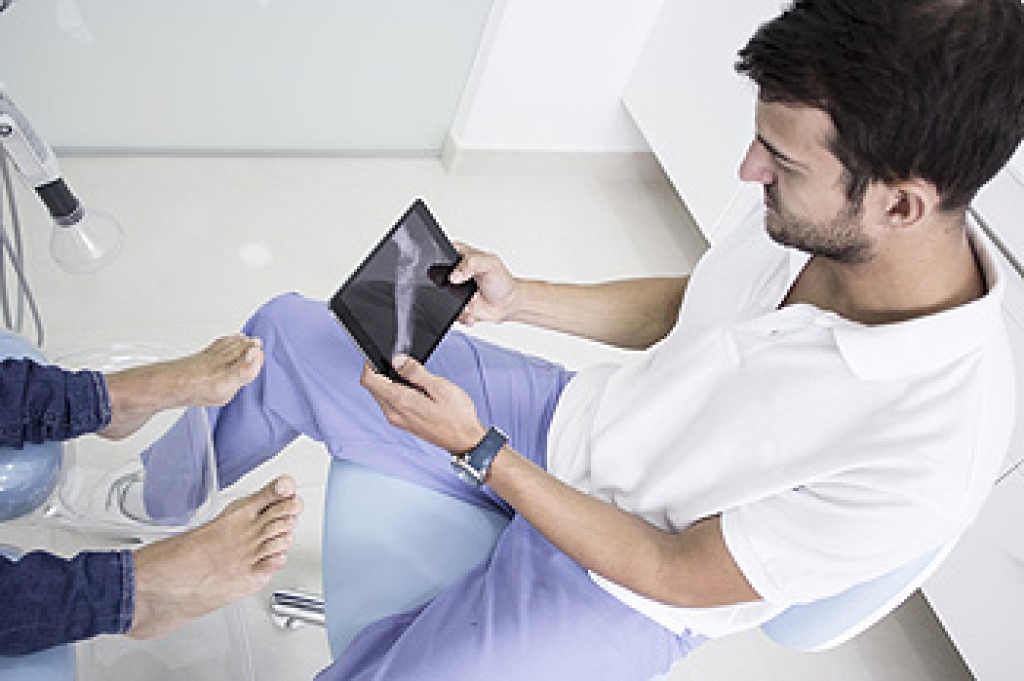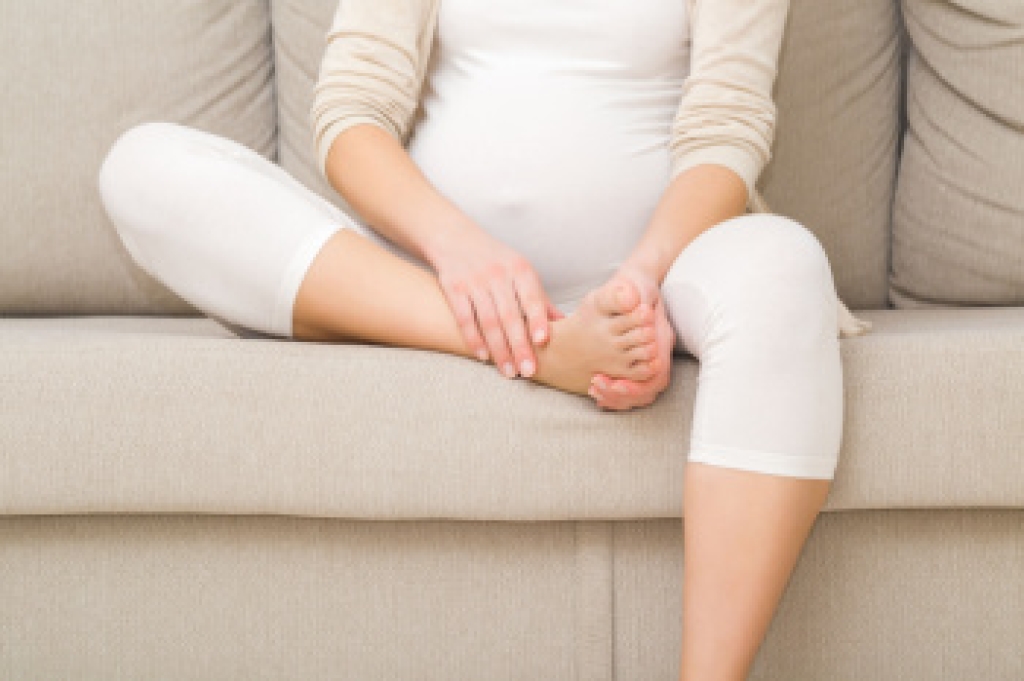
Cracked heels, also called heel fissures, develop when the skin on the bottom of the feet becomes dry, leading to thickened, flaky, or rough areas that eventually split. If left untreated, cracked heels can deepen and cause pain, bleeding, or infection. Diabetes, thyroid disorders, and skin diseases like eczema or psoriasis may increase the likelihood of developing cracked heels. Prolonged standing, wearing open-backed shoes like flip-flops, or spending long hours on hard surfaces, can also contribute. A podiatrist can evaluate the severity of the fissures, trim away thickened skin through a process called debridement, and apply protective dressings to promote healing. Specialized orthotics may be recommended to redistribute pressure and support the heel. In more severe cases, prescription-strength agents or even surgery may be needed to address complications. If you have painful cracks or fissures on your heels, it is suggested that you make an appointment with a podiatrist for an exam, diagnosis, and treatment.
Cracked heels are unsightly and can cause further damage to your shoes and feet. If you have any concerns, contact Shawn Echard, DPM from Laurel Podiatry LLC. Our practitioner can provide the care you need to keep you pain-free and on your feet.
Cracked Heels
Cracked heels appear unappealing and can make it harder for you walk around in sandals. Aside from looking unpleasant, cracked heels can also tear stockings, socks, and wear out your shoes. There are several methods to help restore a cracked heel and prevent further damage.
How Do You Get Them?
Dry skin is the number one culprit in creating cracked heels. Many athletes, walkers, joggers, and even swimmers suffer from cracked heels. Age and skin oil production play a role to getting cracked heels as well.
Promote Healing
Over the counter medicines can help, especially for those that need instant relief or who suffer from chronic dry feet.
Wear Socks – Wearing socks with medicated creams helps lock in moisture.
Moisturizers – Applying both day and night will help alleviate dryness which causes cracking.
Pumice Stones – These exfoliate and remove dead skin, which allows for smoother moisturizer application and better absorption into the skin.
Change in Diet
Eating healthy with a well-balanced diet will give the skin a fresh and radiant look. Your body responds to the kinds of food you ingest. Omega-3 fatty acids and zinc supplements can also revitalize skin tissue.
Most importantly, seek professional help if unsure how to proceed in treating cracked heels. A podiatrist will help you with any questions or information needed.
If you have any questions, please feel free to contact our offices located in Greensburg and Somerset, PA . We offer the newest diagnostic and treatment technologies for all your foot care needs.




